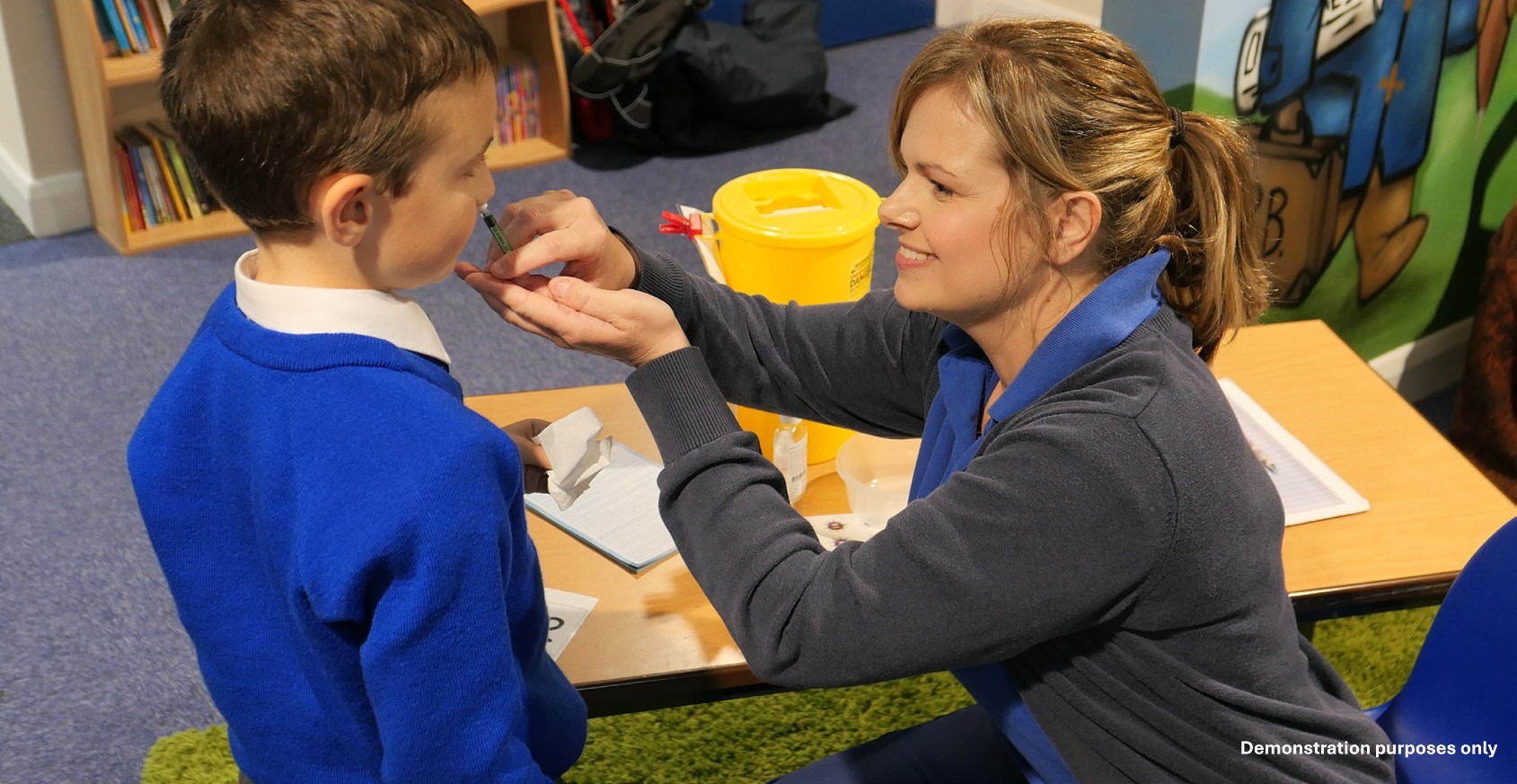With the colder winter months incoming, now is the time that we’ll begin to see an increase in common airborne diseases, such as flu, and a corresponding increase in absences from school and work as a result of illness.
However, we know that, alongside simple measures we can all take like disinfection, handwashing, and ventilation, getting vaccinated can significantly reduce the transmission of diseases.
Vaccinations are a key defence against flu
“Vaccinations are a key defence against lots of diseases including flu and can play an important role in lessening the impact of these diseases on you, your child, and your wider family” comments Karen Goy, Lead Nurse for Quality and Risk – Vaccination Programme, NHS Lincolnshire Integrated Care Board.
In terms of getting school children vaccinated, the School Age Immunisation Service (SAIS) will continue visiting Lincolnshire schools after the upcoming half-term break.
“This autumn, all schoolchildren from reception to year 11 will be offered a flu vaccination at school and most will be offered the nasal spray flu vaccine, which is a quick and painless way to give the flu vaccination.
Don’t forget to give consent for your child to be vaccinated at school
“The key thing for parents and guardians to remember is that they need to give consent for their child to be vaccinated. In Lincolnshire consent can be given by completing an online consent form, which is usually sent via email to you through your child’s school,” explains Karen.
Childhood infections are generally picking up, in terms of case numbers, across England. Infections like measles, flu and whooping cough can have a huge impact on your child’s life, including missing out on school, being hospitalised or even experiencing life-long complications and disability.
“Getting your child vaccinated is the best way to protect them, if they’re not vaccinated they’re not protected. This is why it’s so important for parents and guardians to take up the offer of vaccinations for your children, whether this is for flu or some other vaccination, and to remember to provide your consent,” adds Karen.
You can also complete the consent form online – Flu Vaccination Consent Form.
Children with long-term health conditions are at a higher risk
“It’s also worth remembering that children with long-term health conditions are at a higher risk of getting flu, so it’s important they are vaccinated, either at school or by booking an appointment at their GP practice.”
If you’re worried your child might have missed one of the vaccinations, it’s never too late to check if they can catch up. This can be done by checking your child’s Red Book, which is given to parents in the UK to track a baby’s health and development, or by contacting your GP if you are unsure.
2-3 year-olds can also have the flu vaccination
It’s also a good opportunity to remind parents and guardians of younger children that 2-3 year-olds can also have the flu vaccination.
“This can be done at your GP surgery. As with older children, 2-3 year-olds will be given the nasal spray flu vaccine. You should contact your surgery to book an appointment,” concludes Karen.
Find out more…
You can find also find out more about the children’s flu vaccine here Children’s flu vaccine – NHS. You can book a free flu vaccination for your child aged 2 or 3 years (as of 31 August 2025 – i.e. born between 1 September 2021 and 31 August 2023) online here http://www.nhs.uk/bookflu.
The pharmacy finder can be used to find walk-in appointments.
